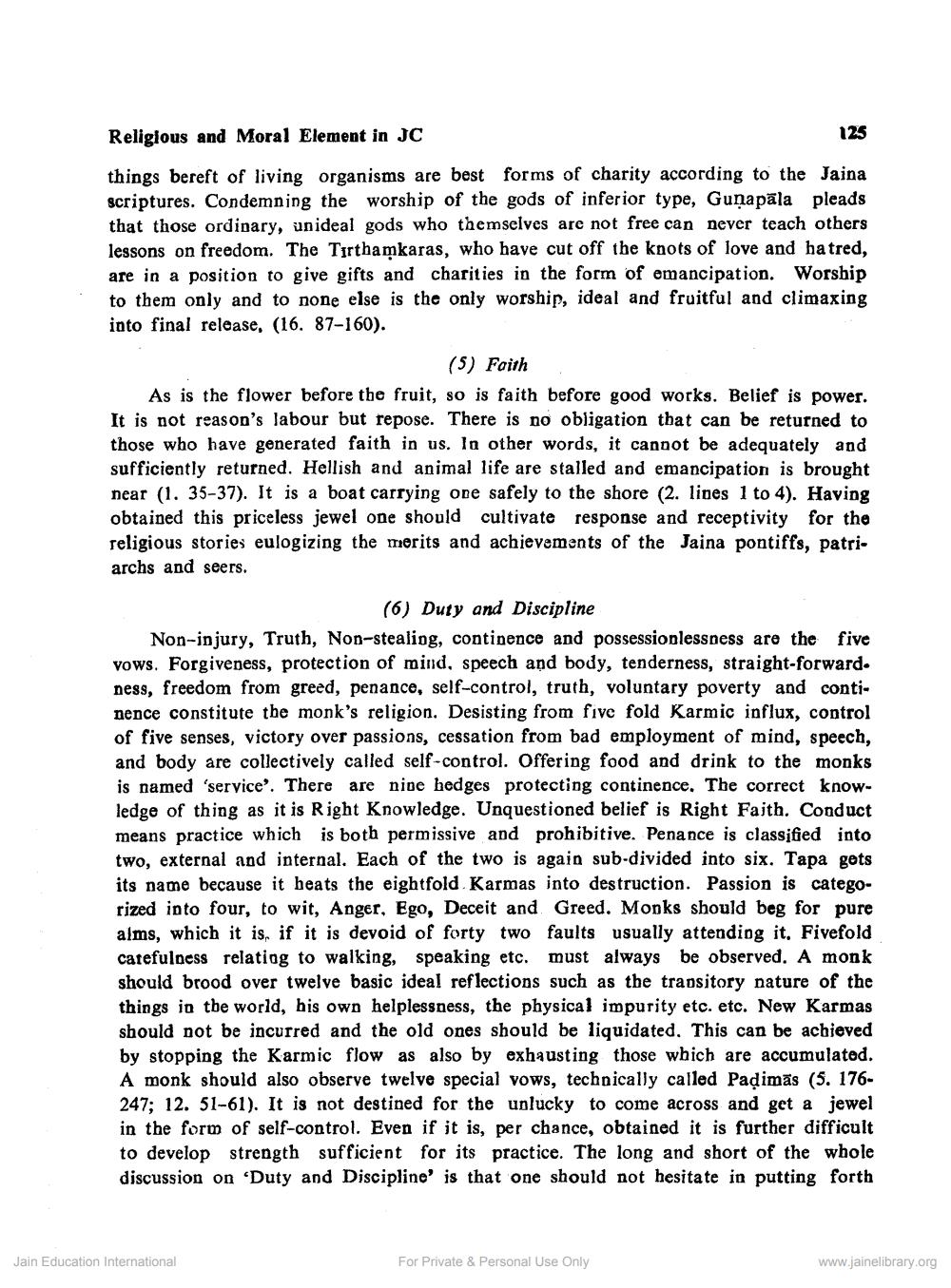________________
Religious and Moral Element in JC
125
things bereft of living organisms are best forms of charity according to the Jaina scriptures. Condemning the worship of the gods of inferior type, Guņapāla pleads that those ordinary, unideal gods who themselves are not free can never teach others lessons on freedom. The Tirthamkaras, who have cut off the knots of love and hatred, are in a position to give gifts and charities in the form of emancipation. Worship to them only and to none else is the only worship, ideal and fruitful and climaxing into final release, (16. 87-160).
(5) Faith As is the flower before the fruit, so is faith before good works. Belief is power. It is not reason's labour but repose. There is no obligation that can be returned to those who have generated faith in us. In other words, it cannot be adequately and sufficiently returned. Hellish and animal life are stalled and emancipation is brought near (1. 35-37). It is a boat carrying one safely to the shore (2. lines 1 to 4). Having obtained this priceless jewel one should cultivate response and receptivity for the religious stories eulogizing the merits and achievements of the Jaina pontiffs, patriarchs and seers.
(6) Duty and Discipline Non-injury, Truth, Non-stealing, continence and possessionlessness are the five vows. Forgiveness, protection of mind, speech and body, tenderness, straight-forward. ness, freedom from greed, penance, self-control, truth, voluntary poverty and continence constitute the monk's religion. Desisting from five fold Karmic influx, control of five senses, victory over passions, cessation from bad employment of mind, speech, and body are collectively called self-control. Offering food and drink to the monks is named 'service'. There are nioe hedges protecting continence. The correct knowledge of thing as it is Right Knowledge. Unquestioned belief is Right Faith. Conduct means practice which is both permissive and prohibitive. Penance is classified into two, external and internal. Each of the two is again sub-divided into six. Tapa gets its name because it heats the eightfold Karmas into destruction. Passion is categorized into four, to wit, Anger, Ego, Deceit and Greed. Monks should beg for pure alms, which it is, if it is devoid of forty two faults usually attending it. Fivefold carefulness relatiog to walking, speaking etc. must always be observed. A monk should brood over twelve basic ideal reflections such as the transitory nature of the things in the world, his own helplessness, the physical impurity etc. etc. New Karmas should not be incurred and the old ones should be liquidated. This can be achieved by stopping the Karmic flow as also by exhausting those which are accumulated. A monk should also observe twelve special vows, technically called Padimas (5. 176247; 12. 51-61). It is not destined for the unlucky to come across and get a jewel in the form of self-control. Even if it is, per chance, obtained it is further difficult to develop strength sufficient for its practice. The long and short of the whole discussion on 'Duty and Discipline' is that one should not hesitate in putting forth
Jain Education International
For Private & Personal Use Only
www.jainelibrary.org




